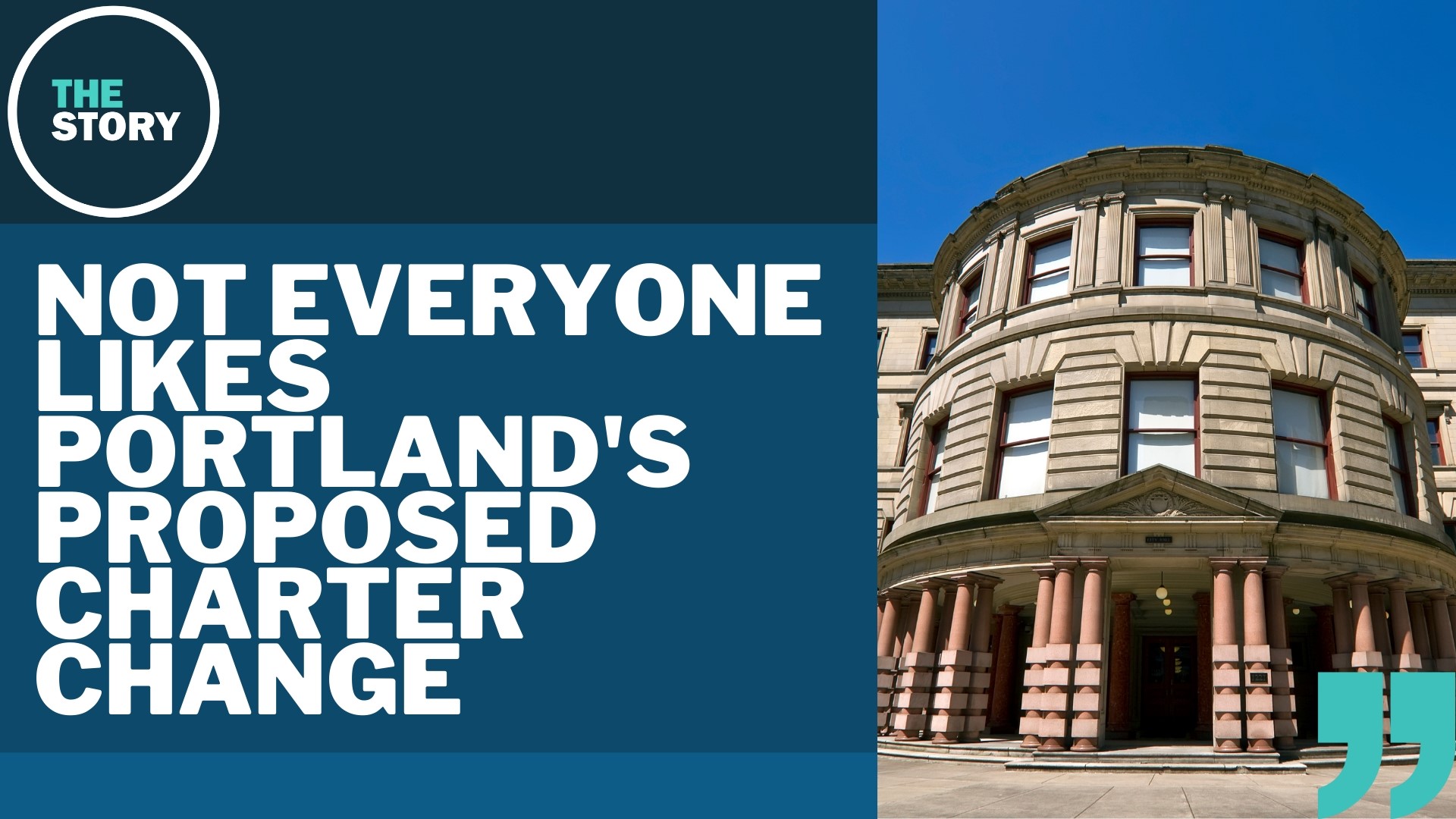PORTLAND, Ore — Portland voters will get to weigh in this November on a package of proposals that would fundamentally reshape the structure of Portland's city government, but not everyone on the current city council appears to be on board.
Mayor Ted Wheeler and Commissioner Mingus Mapps both raised multiple objections at a meeting Thursday afternoon with members of Portland's Charter Review Commission, which developed the proposal.
The meeting was essentially a formality; the charter commission approved the package earlier this month by a large enough majority to send it straight to the November ballot without giving the city council a chance to make changes.
The commission's proposal would divide the city into four geographic districts, each electing three people to a 12-member council, and it would implement a ranked choice voting system. The districts would be drawn by a separate independent districting commission.
It would also separate the city's legislative and administrative functions, leaving policymaking to the council and putting the mayor in charge of day-to-day operations with the help of a professional city administrator or manager who would be chosen by the mayor but confirmed by a council vote.
The mayor would not be able to veto council decisions and would not have a council vote except as a tiebreaker. It would also be up to the city administrator, not the mayor, to hire and fire bureau executives.
If voters pass the proposal, it would immediately kick off a transition period starting with the creation of a districting commission in January 2023, according to commission member Gloria Cruz.
The district plan would be adopted by September 2023, and the first district elections using the new ranked choice voting system would be held in November 2024. The new mayor and council would enter office on Jan. 1, 2025.
The transition would have a one-time cost of about $4 million to $5.9 million per year, Cruz said, and the new system would have an annual ongoing cost of $900,000 to $8.7 million after 2025.
None of the current elected officials' terms would carry over; each of them would need to run under the new system in 2024 if they wanted to try to remain in office.
Commissioner objections
Mapps described the combination of multi-member districts and ranked choice voting as unique, and pressed the charter commission members to provide examples of other jurisdictions with a comparable format.
He also objected the the commission's plan to combine all of the proposed changes into a single ballot measure, calling it his "deepest disappointment" with the commission's proposal.
"When I take a look at the city manager thing, the multi-member district thing, the ranked-choice thing, the expanding the size of the council thing, those strike me as being really fundamentally different questions," he said.
Charter commission member Becca Uherbelau replied that she and her fellow members viewed the various changes as interdependent, and that splitting them up would have made things more confusing because each one would've needed language specifying that it would not take effect without the others.
The commission also heard from a lot of voters who said their highest priority was changing Portland's form of government, she said, but the change of government question polled higher when it was paired with multi-member districts and ranked choice voting rather than presented alone.
Wheeler asked whether the commission had considered a "strong mayor" form of government, which would give the mayor a greater degree of power, such as the ability to directly hire and fire department heads.
Charter commission member Melanie Billings-Yun replied that the commission did examine the idea, but wanted a broader separation of powers in part because Portlanders vehemently rejected a strong mayor format during previous charter reform attempts in 2003 and 2007.
"Their largest complaint was they felt that it gave too much power to the mayor," she said. "They felt that it was, in fact — the terminology we saw, we read through all of their comments — was that it was a 'mayoral power grab.'"
Wheeler also raised concerns about the lack of a mayoral veto, arguing that it could prevent the new system from fully shaking off the current system's perceived lack of clear lines of responsibility and accountability.
"If the council gives... a flawed or not-fully-baked proposal to the mayor and the city manager... and then it blows up, couldn't you conceivably get into this finger-pointing game where the council says 'well, the mayor and the city manager screwed up the implementation,' and then the mayor and the city manager... say 'well, you gave us a dumb, poorly though-out idea'?" he asked.
Commission member Andrew Speer replied that the mayor would be accountable for executing the direction of the council through policymaking, and that the commission had consensus about that idea.

